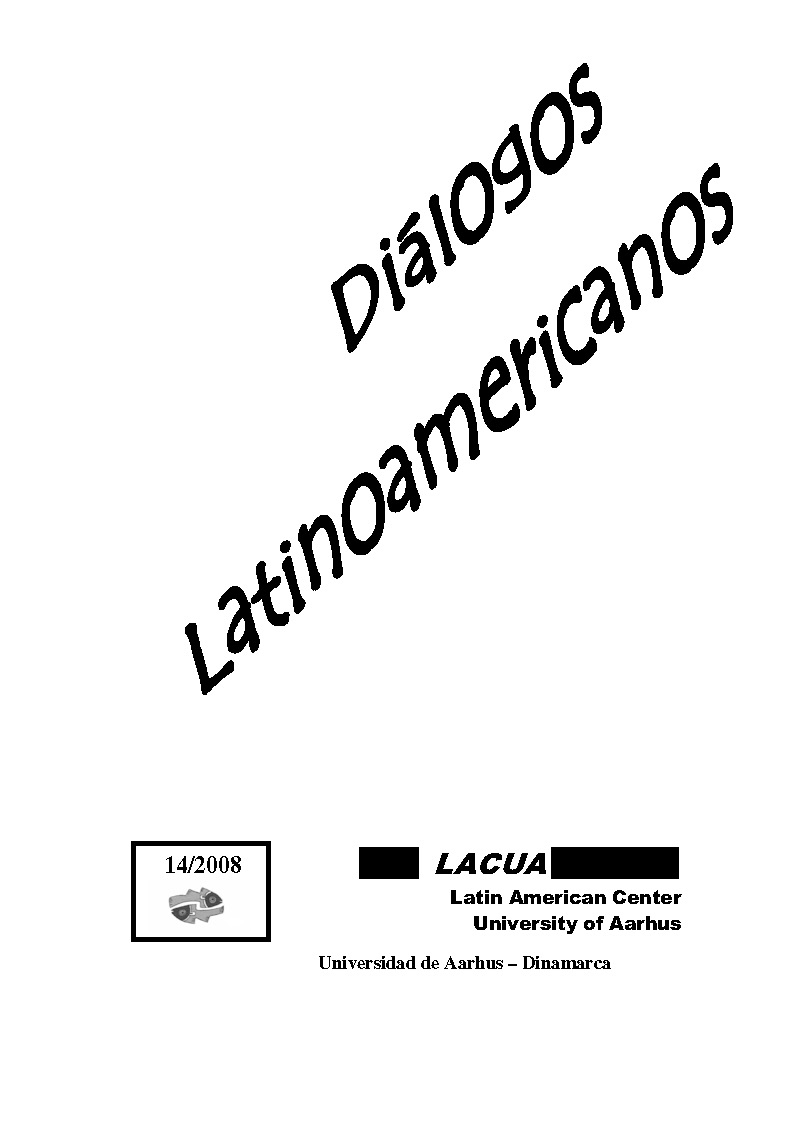Negotiating Membership in a Mexican Transnational Community
A study of North American Immigrants in a Mexican Border Town
DOI:
https://doi.org/10.7146/dl.v9i14.113590Keywords:
citizenship, membership, North American immigrants, transnationalism, social spaceAbstract
This article seeks to shed light on new formations of citizenship and
political transnationalism in a Mexican town in the Mexican – US
border region. We analyze how a North American immigrant group
as a new actor forms part of the civil society and the implications
that networks forged by this group have for the nature of
citizenship. The article argues that we are in need of a more nuanced
account of the limits and possibilities for understanding
transnational citizenship. The North American immigrant group
recognizes the continuing significance of the nation state (US),
however they are flexible in negotiating the practices and rights of
citizenship across borders. They must accommodate or resist, as
they attempt to politically construct new spaces for practicing
citizenship across borders. Thereby the article rejects both
nationalist and post-nationalist essentialisms and focuses on the real
social differences in order to capture the social space of the
changing nature of transnational citizenship.
References
inmigranttes norteamericanos en un pueblo mexicano. Transnacionalismo y asimilación,
PhD Dissertation, Frederiksberg, Copenhagen Business School, The Center for the Study of
the Americas.
Clausen, Helene Balslev (2008ª), “La utopía de los estadounidenses en un pueblo mexicano
– un estudio sobre la construcción de una comunidad imaginaria-“. In: Balslev Clausen,
Gustafsson and Velázquez (editors), Utopía y globalización, Hermosillo, Colegio de
Sonora.
Clausen Helene Balslev (forthcoming) (2008b), “La migración de los Estados Unidos a
Sonora – Un caso de estudio sobre un grupo de inmigrantes anglos norteamericanos”. In:
Covarrubias and Velázquez (editors), Instituciones, Elecciones, Actores y Cultura Política
en el Nuevo Siglo: Las Encrucijadas y los Caminos de Sonora, Hermosillo, Colegio de
Sonora.
Dagnino Evelina (2005), Meanings of Citizenship Working Paper, Institute of Development
Studies (DIIS): 258
Falk Richard (1992), “The Making of Global Citizenship” In: Brecher et al (editors) Global
Visions: Beyond the New World Order, Montreal, Black Rose Books
Fox Jonathan (2005), “Unpacking Transnational Citizenship” In Annual Review of Political
Science, (8) 171-208
Goldring Luin (1998), ”The Power of Status in Transnational Social Fields” In: Smith and
Guarnizo (editors) Transnationalism from Below, , New Brunswick NJ, Transaction
Publishers, 6, 167-172.
Holston, James (1999), “Spaces of Insurgent Citizenship.” In Holston (editor) Cities
and Citizenship. Durham: Duke University Press.
Jones, Emma, and John Gaventa. “Concepts of Citizenship: A Review.” Institute of
Development Studies, Brighton, U.K. Available at Marshall, T.H., 1950, Citizenship, Social
Class and Other Essays, Cambridge: Cambridge University Press.
Iztigsohn José (2000), “Immigration and the Boundaries of Citizenship: The Institutions of
Immigrant’s Political Transnationalism” International Migration Review 34 (4), 1126-
1154.
King (1998), ”International Retirement Migration in Europe” International Journal of
Population Geography, 4, (2) 91-111
Kruuse Henrik (1989), Kvalitativ metode og diskussion. København, Universitetsforlaget.
Levitt Peggy (2001), The Transnational Villagers Berkeley, University of California Press
Marshall (1970 (1950)), “Citizenship and Social Class” In: Class Citizenship, and Social
Development, Chicago, Chicago University Press
O’Reilley Karen (2000), The British on the Costa de Sol: transnational identities and local
communities, London, Routledge.
O’Reilley Karen (2002) “Britains in Europe/the British in Spain: exploring Britain’s
changing relationship to the other through the attitudes of its emigrants” Nations and
Nationalism, 8 (2), 179-193
Portes A; Guarnizo L; Landolt Patricia (1999), “The Study of Transnationalism: Pitfalls
and Promise of an Emergent Research Field” Ethnic and Racial Studies, 22 (2), 217-232.
Portes Alejandro and Luis Guarnizo (2003), “Assimilation and Transnationalism:
Determinants of Transnational Political Action among Contemporary Migrants” American
Journal of Sociology 108 (6), 1211-1248.
Powell Walter and DiMaggio P. (1991), “The Iron Cage Revisited: Institutional
Isomorphism and Collective Rationality in Organisation Fields”, In: Powell and DiMaggio
(editors) The New Institutionalism in Organisational Analysis. Chicago y London, The
University of Chicago Press, 63-82
Sassen Saskia (2006), Territory. Authority. Rights. From Medieval to Global Assemblages,
Princeton, Princeton University Press.
Smith Michael Peter and Luis Guarnizo (1998). Transnationalism from Below New
Brunswick, NJ, Transaction Publishers.
Smith (1998), “Transnational Localities: Community, Technology and the Politics of
Membership within the Context of Mexico and US Migration”, In: Smith and Guarnizo
(editors) Transnationalism from Below, New Brunswick NJ, Transaction Publishers.
Somers, Margaret R. (1993), “Citizenship and the Place of the Public Sphere: Law,
Community, and Political Culture in the Transition to Democracy.” American
Sociological Review 58 (5) (October): 587-620.
Soysal Yasemin. (1994), Limits of Citizenship: Migrants and Postnational Membership in
Europe. Chicago, Chicago University Press.
Spradley James. (1979) 1980)), The Ethnographic Interview United States, Wadsworth
Group/Thomas Learning.
Downloads
Published
How to Cite
Issue
Section
License
Counting from volume 31 (2022), articles published in Diálogos Latinoamericanos are licensed under CC-BY 4.0. Read more about the license terms here https://creativecommons.org/licenses/by/4.0/.
No Creative Commons license applied on volumes 1-30. All rights reserved by the authors. Readers may download, read, and link to the articles, but they cannot republish the articles.
With the publication of volume 31 (2022), authors retain the full copyright to their articles and give Diálogos Latinoamericanos the right to the first publication. Authors also retain copyright to earlier versions of manuscripts, such as the submitted (pre-print) and the accepted manuscript (post-print).
Copyright to articles published in volumes 1-30 is held by the authors.





